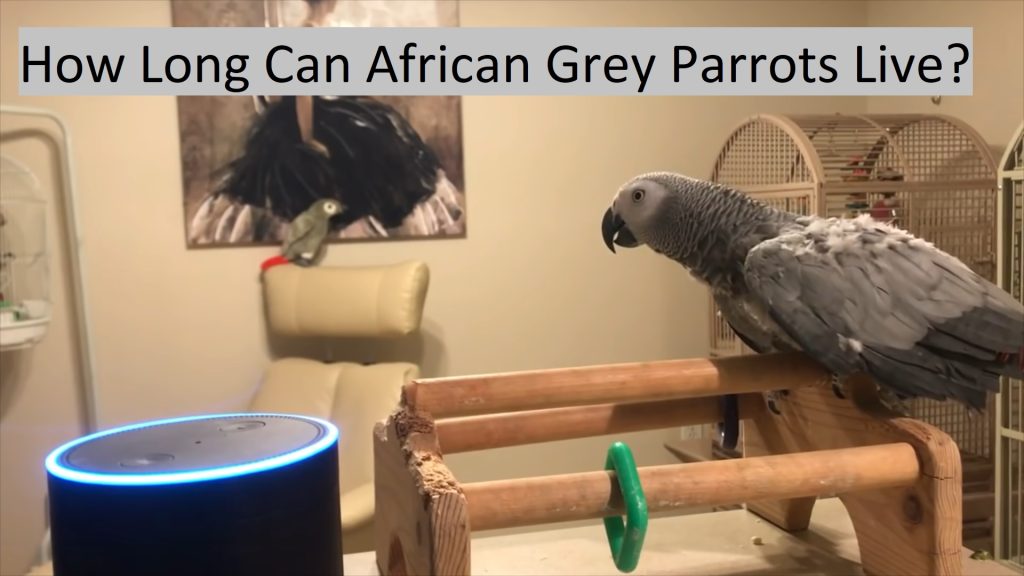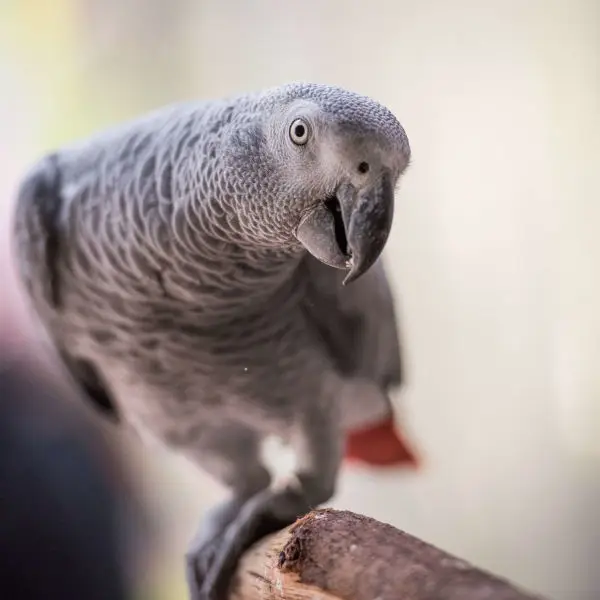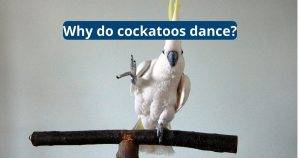How Long Can African Grey Parrots Live?

African grey parrots live for a long time as pets, but their lifespan depends on many factors. Providing a good diet, exercise, socialization, and mental stimulation will help your bird live longer. Annual checkups by a qualified avian vet are also crucial to keep your bird healthy. These semi-annual visits can identify and address health, nutrition, and behavioral issues before they become more serious.
Diet
These smart birds live a long time in captivity, but only if they get the right diet and care. These animals need to be fed a wide variety of vegetables, fruits, organic pellets, seeds, nuts in the shell, and herbs. They also need to exercise, receive mental stimulation, and be exposed to sunlight daily.
In the wild, African grey parrots typically live from 40 to 60 years. However, they tend to live shorter lives as pets because of improper diets and insufficient care.
In the wild, these birds are foragers and eat a wide range of foods. They need a lot of protein and fatty acids to thrive. They need plenty of fresh water as well. In fact, if they are deprived of water for too long, their blood levels drop and their organs start to fail. It is important that their owners feed them a balanced diet with lots of fresh vegetables and fruits, a mix of parrot pellets, and healthy seeds.

Exercise
African greys are highly intelligent and need plenty of mental stimulation. Lack of it can lead to depression and aggression, which are dangerous to their health. Exercise is also very important for these birds. It keeps them from becoming overweight and helps alleviate boredom. Getting your parrot out of his cage and walking around the house, encouraging him to flap his wings, and playing games with him are all great ways to get your pet some exercise.
When it comes to training your parrot, a positive behavioral reinforcement approach is best. This technique was developed by Dr. Irene Pepperberg, who had her bird Alex speak 50 words and identify objects by color and shape. This was a groundbreaking feat, and it cemented African grey parrots’ reputation as talkers.

Socialization
African Greys are social birds that can live on their own but thrive with interaction from family members. They love to play with puzzle-like toys and learn tricks, which gives them a sense of accomplishment. These intelligent creatures may become agressive and/or destructive if bored, so it is important to keep them occupied.
Parrots can become frightened of strangers, and it is best to introduce them to new people slowly. Have guests watch your bird from a distance and wait for the bird to approach them. If it does not, tell the guest to ignore it. The guest should also refrain from touching the bird unless it is comfortable with that.
If you are interested in adopting an African Grey, it is a lifetime commitment that will likely outlive you. Ensure your parrot is given the highest quality diet, exercise and mental stimulation to have the longest possible life. Regular, preventative veterinary checkups are also important.

Veterinary Care
Veterinary care plays a significant role in parrot life expectancy. African greys are known to hide illness until it is too late, making annual veterinary checkups essential. Parrots should be tested annually for parasites and other conditions common in the species.
The avian vet can also help you determine your bird’s age based on subtle physical changes, such as the eyes becoming darker straw in color. This is a reliable method for males, but females have a long fertile period and it may not be accurate for them.
Providing enough exercise and mental stimulation can help prolong your parrot’s life. Parrots should be free to fly and explore their environment with toys, and they need daily interaction with their human flock members. Parrots that are clingy and unsocialized are more likely to develop illnesses and behavioral problems that can reduce their overall life expectancy. The best way to socialize a new bird is to expose it early to different people, events and environments, such as young and old people, other animals, cars, etc.





